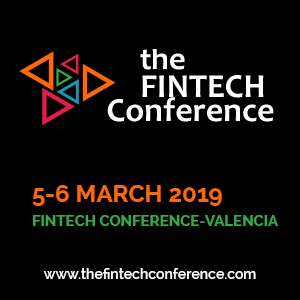By Scott Purcell
2018 was a wild ride. There were negatives like jaw-dropping swings in the price of Bitcoin, and with tokens of thousands of baseless ICO’s getting washed out of the system. And there were positives of unprecedented FinTech innovation, the arrival of institutional players, the SEC (and FinCEN) beginning to provide clarity and taking select enforcement actions, and new use cases for blockchain technology.
And in 2019? A few of my thoughts and predictions on the larger trends we’ll see include…
The tokenization of…everything.
1. STO’s (Securities Token Offerings) are currently the hot item that everyone is talking about. And yes, businesses will raise money and issue tokens instead of stock/bond certificates, and we’ll see new types of exchanges rise up to trade these securities. This trend will accelerate, especially given the easier path to liquidity for investors (see #5 below).
But this is just the tip of the iceberg.
2. Currency will be (and is already being) tokenized. Numerous stablecoins are issued against USD held in trust. This will also happen for EUR, GBP, YEN, SGD and other currencies. Although the current major use-case for stablecoins is as a general store of digital value, that will start to shift as ecommerce merchants begin to move away from expensive credit cards to adopt stablecoins as a low (or even “no”) fee payment method.
3. Lending will be tokenized. This is, I think, perhaps the largest and most disruptive use of blockchain technology. It’s also the one that our current US regulatory regime is least equipped to foster, nurture and oversee. The current process for making loans and then packaging, securitizing and trading them is horribly kludgy and antiquated. This is also true for distributions of interest, principal, rents, revenue share, dividends and other remittances to lenders and investors, which will use new, highly efficient, blockchain-driven processes.
4. Real estate, automobiles, gold, diamonds, art and every asset imaginable will become tokenized such that it is liquid and easy for people to finance, borrow against or invest in. In 2018 we saw Harbor tokenize a 260-apartment student housing project at the Univ of South Carolina, and Indigogo tokenize an offering by the St Regis Aspen hotel, which is the start of what will be a mega-trend in 2019, especially as these tokens start to trade (see next paragraph).
5. Stocks and bonds will be tokenized. How can people buy shares of private companies in secondary markets? How can people in Africa buy shares of USD-priced stock on NASDAQ? How can people in the US buy shares of stock that only trade on an exchange in Asia or Europe and in currencies native to those countries? The answer will be the tokenization of those securities and listing them on digital exchanges globally. tZero is the first exchange to announce the listing and trading of tokenized private securities in compliance with US securities regulations, soon to be followed by tokenized trading of public securities. This will be a major, game-changing trend.
6. There will be fraud in asset tokenization.
The storm clouds are already forming, and it’s exasperatingly unnecessary. “Hey buddy, wanna buy some tokens backed by the Brooklyn Bridge?” – some people are issuing tokens purportedly backed by USD, by real estate, by stocks and bonds, and by other assets without depositing the title to those assets with a regulated, audited, qualified third-party trustee.
Would a bank make a home or auto loan without holding the title to the asset? Of course not. Would a pawn shop make a loan to someone without holding the jewelry in its safe? Of course not. Yet that’s exactly what some people are doing in the early stages of this space, “give me money for tokens backed by this asset, which I’m holding…trust me.”
Most issuers are already using trust companies to hold those assets and build trust in the markets. As has been done for decades with ADR’s and securitization of real estate loans, which employ custodians to hold underlying assets. But sadly, I think it may take well-publicized losses to wake some regulators (and lawyers, accountants, broker-dealers, advisors and exchanges) up to the fact that if the assets aren’t held by a qualified trustee, then the potential for fraud is an unmanageable risk.
7. The SEC and FinCEN will step up their investigations and enforcement actions in the space.
I’m amazed that I continue to have conversations at conferences with otherwise very bright people who seem to have a complete lack of appreciation, and at times even a willful disregard for US rules and regulations. Compliance may be a pain, breaking the rules is far more painful. I agree that there’s quite a bit of gray area that’s yet to be clarified, and that’s what gives entrepreneurs a chance to build unicorns in a formative industry when the major financial firms are too afraid to participate, but some people just continue to do dumb things which are blatant violations of various regulations.
8. Global exchanges and intermediaries will legally poach business from their US counterparts.
International exchanges and platforms have gathered millions of customers who use their services daily. This forms a powerful base to start funding US asset-backed loans and business capitalization from offshore investors. This is fantastic for investors globally, everywhere except the US. Some examples of how this may play out include;
A US business (of any size) wants to raise some capital. It does so using “Reg S”, which permits it to raise money from non-US investors with very few restrictions. Money flows into the company from offshore investors, which is a good thing as the business gets funded and jobs get created. The company doesn’t have to worry about whether those investors are “accredited” or not. The company doesn’t have to make any regulatory filings. And those offshore investors can list their “stocks” or “bonds” (in the form of tokens) on a non-US exchange and start trading them immediately. Those non-US exchanges can even publish investor research reports on the tokens they trade!
A US person wants to buy a house or a car. They do so by getting a loan from an offshore lending platform (which holds title to the home or auto with a US trust company). The offshore lender then tokenizes that real estate (or automobile) loan and sells it on non-US exchanges. And if that’s murky due to US lending regulations? Okay fine, then the offshore lender might perhaps buy the home and enter into a contract where the homeowner rents it and buys it little by little (similar to the model used by Islamic banks). Result is the same, the profits are made by investors globally…everywhere except the US.
The rise of infrastructure businesses.
Much ado has been made about custodians, and rightly so. Assets need to be held by a regulated trustee. There is a huge need for fiat on-and-offramps. And many investors will want their tokens held on statement just like they do their stocks, bonds and mutual funds. But besides trust companies and banks, there are other unicorns in the making…
Tokenization of assets requires help with creating smart contracts, and with managing them. It requires innovative blockchains that provide faster settlement of transactions, good KYC/AML, and tools to handle/reverse criminal acts. It requires front-end servicers to originate a flow of funds by connecting people who need funds with people who have money. It requires settlement mechanisms. It requires secondary trading exchanges, intermediaries and research. It requires debt (and fractionalized ownership) servicing firms. It requires a new breed of legal and accounting representation. And it requires new types of businesses to handle/create/manage things which we cannot yet imagine.
Many of these businesses are already in play. Some are pivoting their well-established business models to address this market, including StartEngine, Republic, Overstock, Cohen & Co, PwC, and of course Prime Trust. Others are new firms that have been purpose-built for this new era, including HBUS, TrustToken, tZero, OKEX, KOI, CoinList, Polymath, Harbor, TokenSoft, OTCXN, AlphaPoint, Daollar, BHEX, Bitrue, Carbon, Stably, AnchorCoin, Stronghold, Consensys, and countless others across all types of service providers.
2019 is going to be exciting. I think it’s when the rubber truly starts to meet the road, following the shakeout of the vaporware that accumulated in prior years, which I chalk up as proof-of-concept for blockchain. I can’t wait for the new year.






























